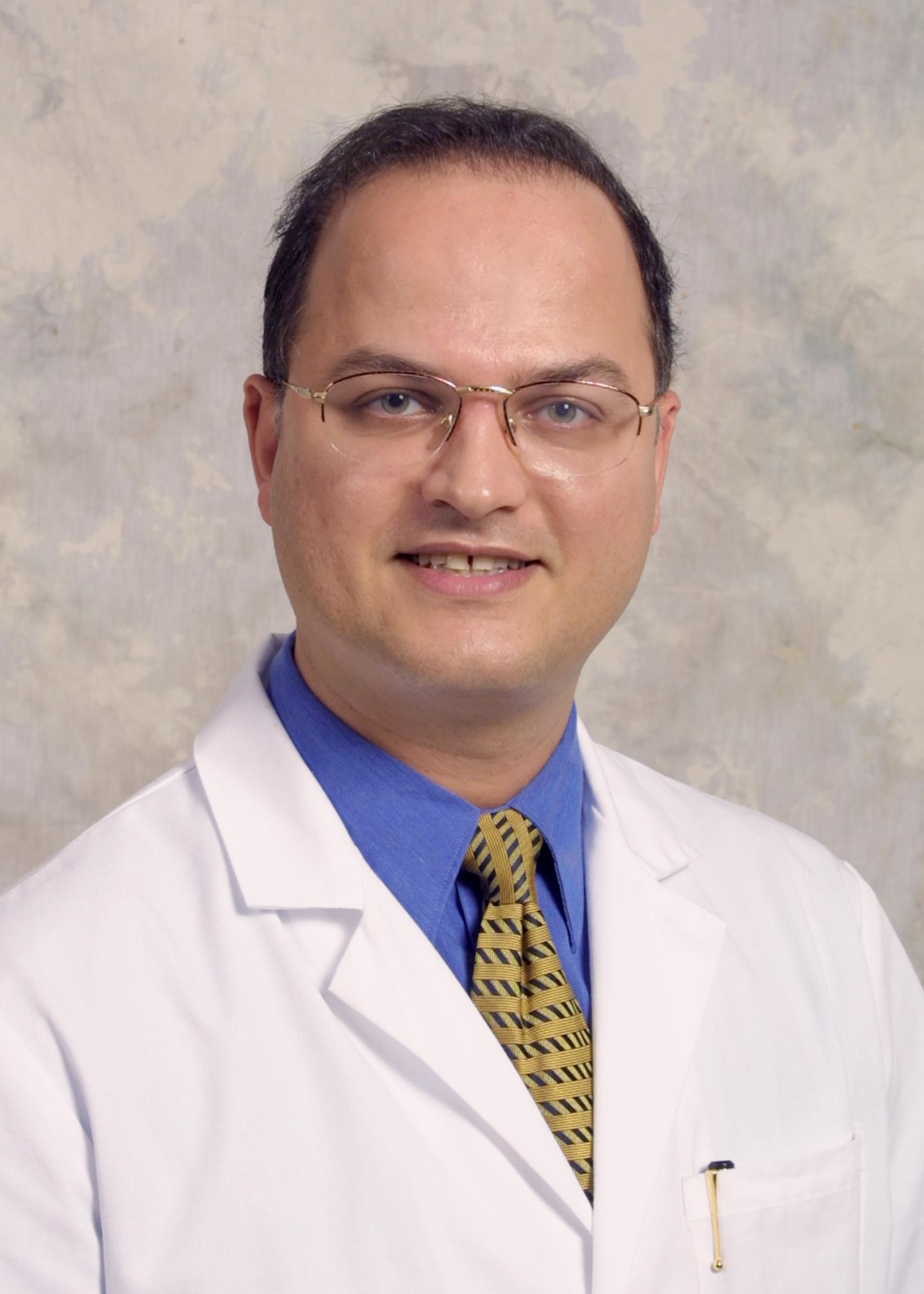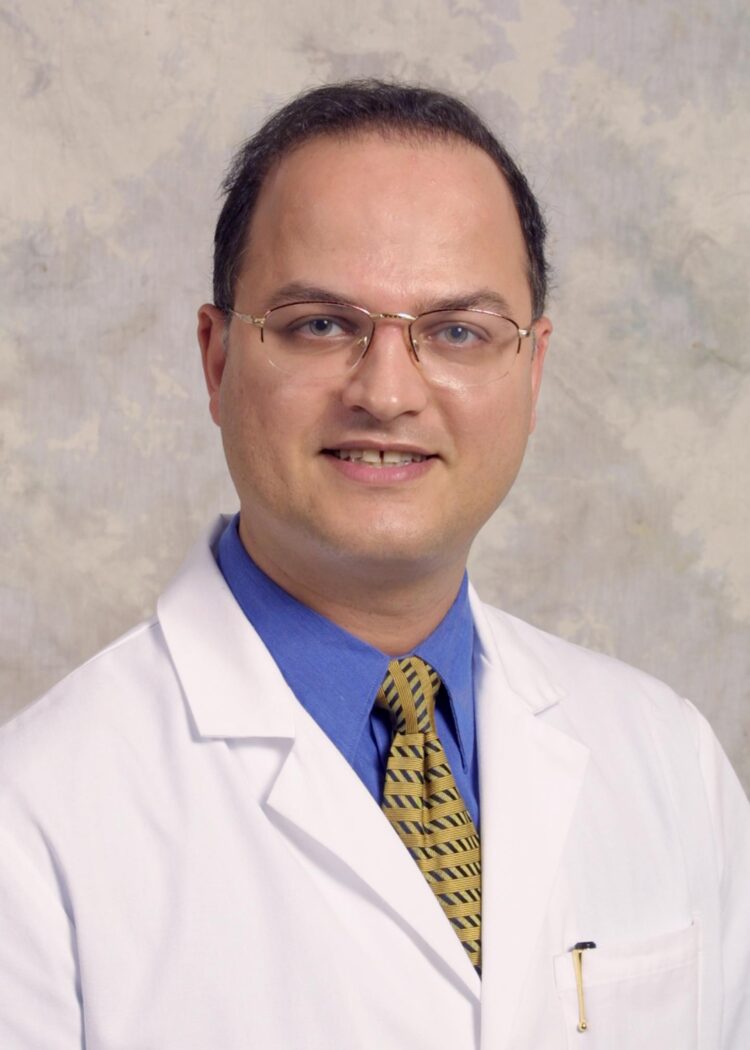University of Miami Health System researchers publish commentary in Lancet Psychiatry

Credit: University of Miami Health System
The COVID-19 pandemic is stressful enough, but for children and adults with autism spectrum disorder (ASD) and their families, the crisis can be especially difficult.
Adrien A. Eshraghi, M.D., M.Sc., professor of Otolaryngology, Neurological Surgery and Biomedical Engineering, has dedicated much of his career to caring for individuals with various disabilities including individuals with autism, who are very dear to him.
Dr. Eshraghi and Miller School coauthors published a new correspondence titled COVID-19: overcoming the challenges faced by individuals with autism and their families in The Lancet Psychiatry*. In this commentary, the authors address specific challenges patients with autism and their families might encounter during the pandemic, as well as what healthcare providers should know and do to ensure optimal and safe care.
Chances are good that providers caring for COVID-19 patients in all settings, including the emergency room (ER) and inpatient settings, will encounter adults and children with autism.
“Autism spectrum disorder prevalence has increased significantly in the last 20 years. In 2004, the prevalence of autism was 1 in 166. Today the Centers for Disease Control (CDC) estimates that 1 in 54 children are on the autism spectrum”, according to Dr. Eshraghi, who also is the director of the University of Miami Hearing Research and Communication Disorders Laboratory and co-director of the University of Miami Ear Institute.
The goal of this paper is to define the challenges these patients face in a pandemic like this, so physicians, caregivers, and the overall health system can better anticipate and meet the needs of these particular patients. At a time when everyone is stressed about contracting COVID-19, becoming better educated about how to manage patients with autism will increase patient and provider safely, while appropriately helping these patients and their families.”
People with autism are at higher risk for COVID-19 complications, according to the CDC. This is because they tend to have immune disorders and other comorbidities.
The process of isolating can be especially hard on children with autism and their families. The pandemic disrupts routine, which is problematic for these patients and caregivers. Patients might have difficulty comprehending the situation and expressing themselves.
Depending on where they are on the spectrum–from extremely high to low functioning –patients might have challenges with communicating, hyperactivity, and behavioral issues. Some individuals on the spectrum are extremely sensitive to sound or bright light.
Because of all these multiple challenges which may be experienced at the same time in some instances, people with autism and their caregivers are likely experiencing heightened stress during this time.
If patients need medical care during the pandemic, the situation for patients and their families often becomes even more overwhelming, according to Dr. Eshraghi.
“The healthcare environment, especially in the emergency room, can be difficult and overstimulating for people with autism spectrum disorder possibly due of the crowd, sounds and lights,” Dr. Eshraghi said. “It’s important to reduce that stress. For example, caregivers are not allowed into many ER exam and hospital rooms during the pandemic. But in the case of autism, patients need their caregivers to help keep them be calm and facilitate communication with providers.”
Dr. Eshraghi recommends that ERs train staff to recognize the signs of autism and understand how to best manage these patients. Often, that means thinking out of the box.
If the patient is running around the ER waiting room, for example, it is not because the parents don’t know how to discipline the child, but rather the child is overwhelmed because of the environment.
“Another issue with people on the spectrum is that some don’t have a concept of having to wait for their turn, so they’re impatient when they have to wait,” Dr. Eshraghi said.
At a time when it is important to wear masks, children with autism might refuse or take off their masks because of sensory issues.
Potential solutions include bringing the child and caregiver to wait in an exam room, rather than keeping them in the waiting room. If the patient keeps taking off his or her mask, provide parents with additional masks to keep the child, parents, and providers safe.
Telehealth can also be a viable and promising solution, but research is needed to develop telehealth services geared specifically toward people with autism, he said. It might actually be even an opportunity for many kids on the spectrum to use these online services, even post COVID-19.
“It’s important that providers and hospital staffs not judge those parents and avoid unintentional discrimination, simply because they don’t understand the behaviors of a person on the autism spectrum,” Dr. Eshraghi said.
A pandemic presents a perfect storm of challenges for patients with autism and their family.
“We need policies to help those people who are more vulnerable during a pandemic,” Dr. Eshraghi said. “Hopefully, this paper will bring these patients’ needs and potential solutions to light.”
“Those with autism spectrum disorder are not just another vulnerable population in the context of COVID-19. While they may share similar needs with other vulnerable groups, some are in fact quite unique. We hope our commentary begins to provide a framework for strategic enhancement and investment in healthcare, therapy, education, and family support during future crises” said co-author Michael Alessandri, Ph.D., executive director of the University of Miami-Nova Southeastern University Center for Autism and Related Disabilities (CARD).
“The care required by individuals with ASD and their families during this pandemic is the care we all desire for ourselves and our families” said co-author Daniel S. Messinger, Ph.D., professor and coordinator of the Developmental Psychology Program.
“It is imperative to understand the challenges encountered by individuals with ASD and their families in this era of COVID-19 to develop solutions for ameliorating or mitigating these challenges” said co-author Rahul Mittal, Ph.D., researcher in Dr. Eshraghi’s Hearing Research and Communication Disorders Laboratory at the University of Miami Miller School of Medicine.
###
Other coauthors of the paper are: Crystal Li, medical student at Miller School of Medicine; Rebecca S. Eshraghi, Ph.D., researcher in Dr. Eshraghi’sHearing Research and Communication Disorders Laboratory; and F. Daniel Armstrong, Ph.D., professor of pediatrics and senior associate dean for child health .
*Correspondence pieces, while not peer-reviewed, represent the views of the authors and not necessarily the views of The Lancet or any Lancet specialty journal.
Media Contact
Joanna Palmer
[email protected]





